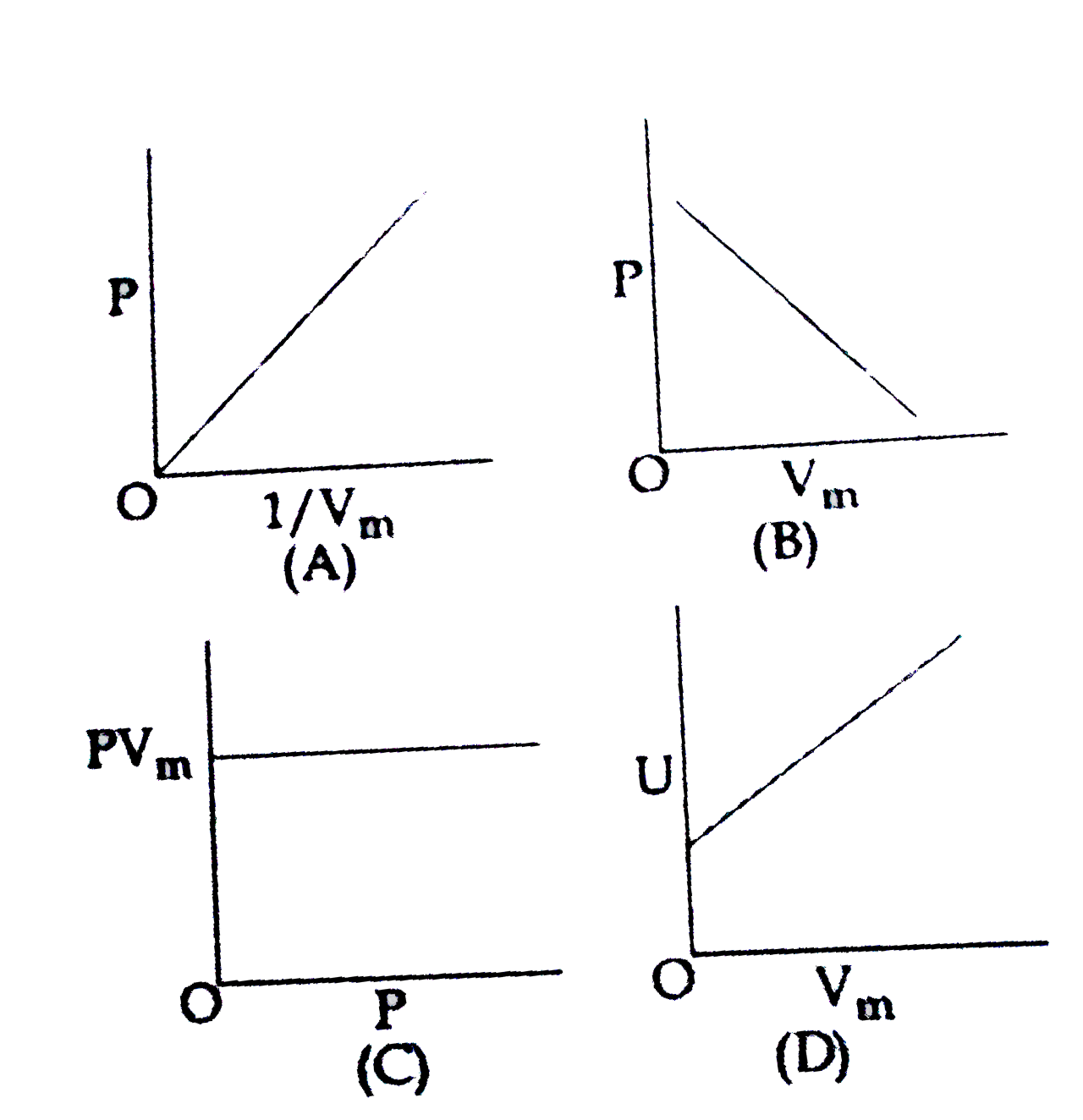Select the correct statement for isothermal expansion of an ideal gas
Internal energy decreases
Temperature remains same
Pressure increases
Kinetic energy increases
To solve the question regarding the isothermal expansion of an ideal gas, we will analyze each option based on the principles of thermodynamics.
1. Understanding Isothermal Process:
- An isothermal process is one in which the temperature of the system remains constant throughout the process. For an ideal gas undergoing isothermal expansion, the internal energy (U) is a function of temperature only.
Hint: Recall that for an ideal gas, internal energy is dependent solely on temperature.
2. Analyzing Internal Energy:
- Since the temperature remains constant during isothermal expansion, the internal energy of the ideal gas does not change. Therefore, it does not decrease or increase.
Hint: Remember that if temperature is constant, internal energy does not change.
3. Evaluating Pressure Changes:
- In an isothermal expansion, as the volume of the gas increases, the pressure decreases according to Boyle's Law (P1V1 = P2V2 for a given amount of gas at constant temperature). Thus, the pressure does not increase.
Hint: Consider the relationship between pressure and volume for an ideal gas.
4. Considering Kinetic Energy:
- The internal energy of an ideal gas is related to the kinetic energy of its molecules. Since the internal energy remains constant during isothermal expansion, the average kinetic energy of the gas molecules also remains constant.
Hint: Connect the concept of internal energy with molecular motion.
5. Reviewing the Options:
- Option 1: Internal energy decreases - Incorrect (it remains constant).
- Option 2: Temperature remains the same - Correct (this is the definition of isothermal).
- Option 3: Pressure increases - Incorrect (pressure decreases during expansion).
- Option 4: Kinetic energy increases - Incorrect (it remains constant).
6. Conclusion:
- The only correct statement regarding the isothermal expansion of an ideal gas is that the temperature remains the same.
Final Answer:
The correct statement for the isothermal expansion of an ideal gas is: Option 2: Temperature remains the same.
- An isothermal process is one in which the temperature of the system remains constant throughout the process. For an ideal gas undergoing isothermal expansion, the internal energy (U) is a function of temperature only.
- Since the temperature remains constant during isothermal expansion, the internal energy of the ideal gas does not change. Therefore, it does not decrease or increase.
- In an isothermal expansion, as the volume of the gas increases, the pressure decreases according to Boyle's Law (P1V1 = P2V2 for a given amount of gas at constant temperature). Thus, the pressure does not increase.
- The internal energy of an ideal gas is related to the kinetic energy of its molecules. Since the internal energy remains constant during isothermal expansion, the average kinetic energy of the gas molecules also remains constant.
- Option 1: Internal energy decreases - Incorrect (it remains constant).
- Option 2: Temperature remains the same - Correct (this is the definition of isothermal).
- Option 3: Pressure increases - Incorrect (pressure decreases during expansion).
- Option 4: Kinetic energy increases - Incorrect (it remains constant).
- The only correct statement regarding the isothermal expansion of an ideal gas is that the temperature remains the same.
The correct statement for the isothermal expansion of an ideal gas is: Option 2: Temperature remains the same.
Topper's Solved these Questions
Similar Questions
For an isothermal expansion of an ideal gas
View SolutionIn the isothermal expansion of an ideal gas
View SolutionFor isothermal expansion in case of an ideal gas :
View SolutionFor the isothernmal expansion of an ideal gas
View Solutionisothermal elasticity of an ideal gas is
View SolutionIn reversible isothermal expansion of an ideal gas :
View SolutionThe combination of plots which does not represent isothermal expansion of an ideal gas is :

View SolutionThe combination of plots which does not represent isothermal expansion of an ideal gas is :
View SolutionDuring the isothermal of an ideal gas :
View SolutionCorrect relation for isothermal reversible expansion of an ideal gas is ΔU=0, ΔS=0,ΔG=−TΔS, ΔH=0
View Solution
